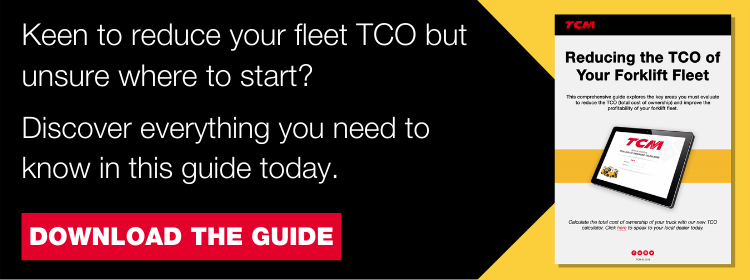Share Article

Technological and regulatory change is happening all around us. Material handling must adapt to reflect this by adopting a holistic approach that utilises the best of what we have today while also planning for the future.
Back in the early 1900s, steam was still the main power source in most factories. People couldn’t understand a reason to change this, despite electric motors being in the early stages of development. A huge investment was required and the savings were disappointing.
But electricity meant that factories could be developed and powered in a more efficient and productive way. For those businesses looking to future-proof their operations and gain a long-term competitive advantage, it represented a natural move away from steam engine power.
The above example required major revolutionary change. Factors such as new EU directives and emission regulations are driving similar changes in our already fast-paced industry today.
Holistic business models that take into consideration multiple levers such as commercial strategies, marketplace conditions, TCO, and emerging technology must be adopted to prevent your business from going the way of those that failed to look beyond the applications of steam power, not 100 years ago.
EU directives and emission regulations reshaping your market
New EU directives, emission regulations, and fleet electrification are driving significant material handling change in 2019. It’s also possible that the 2030 ban on petrol and diesel engines will come in much sooner. Will your business be prepared for that change when it comes?
Although the 2030 ban might not affect you and your business today, gradually introducing electric trucks into your operation could lead to some considerable cost savings and environmental benefits.
Heineken Hungary lowered their CO2 emissions by 4.3 tonnes annually by replacing LPG trucks with TCM electric counterbalance forklifts. Read the full story.
With a broad range of new technologies available, it’s worth exploring your options now (by looking into alternative fuels, for example) and evaluating how this will impact your broader business goals prior to the regulation coming in.
Related Read: Lead-Acid or Lithium-Ion: What’s Powering Your Warehouse?
‘Technology represents the how of change’
Graham Jones, Dealer Development Director at TCM
When it comes to technological change, Graham Jones, Dealer Development Director at TCM stresses the importance of developing a holistic business model. ‘We can’t just wait for it to happen — we have to make it happen’, he adds.
Electric forklift trucks today have been designed and built to meet the majority of applications up to 3.5 tons, with further development of equipment ongoing when it comes to big trucks and heavy industry.
At TCM, we help our customers to develop their businesses by introducing innovative products and solutions that are tailored to their needs.
At the start of your electrification journey it’s worth asking yourself: are you driving change or are you being driven by change?
Start your electrification journey now by browsing our range of electric counterbalance forklifts.
‘Transformation needs to be created by us’
Graham Jones
‘The future doesn’t just happen, we make it happen’, Graham emphasises. By embracing technology, we can all play a part in facilitating that change.
That’s why at TCM, we have developed our network and provided sales tools to help your local dealer to assess your business in more detail. Understanding your objectives and applications ensures we are not only able to offer the right solution but provide an insightful report that reveals your total cost of ownership (TCO).
Rewind a hundred years, when the move from steam power to electricity meant a costly and disruptive new way of developing and powering factories. Faced with today’s revolutionary factors, what can today’s material handling industry learn from this?
Learn how to calculate your TCO in our guide. To get your copy today, click the image below.

.png?width=50)


